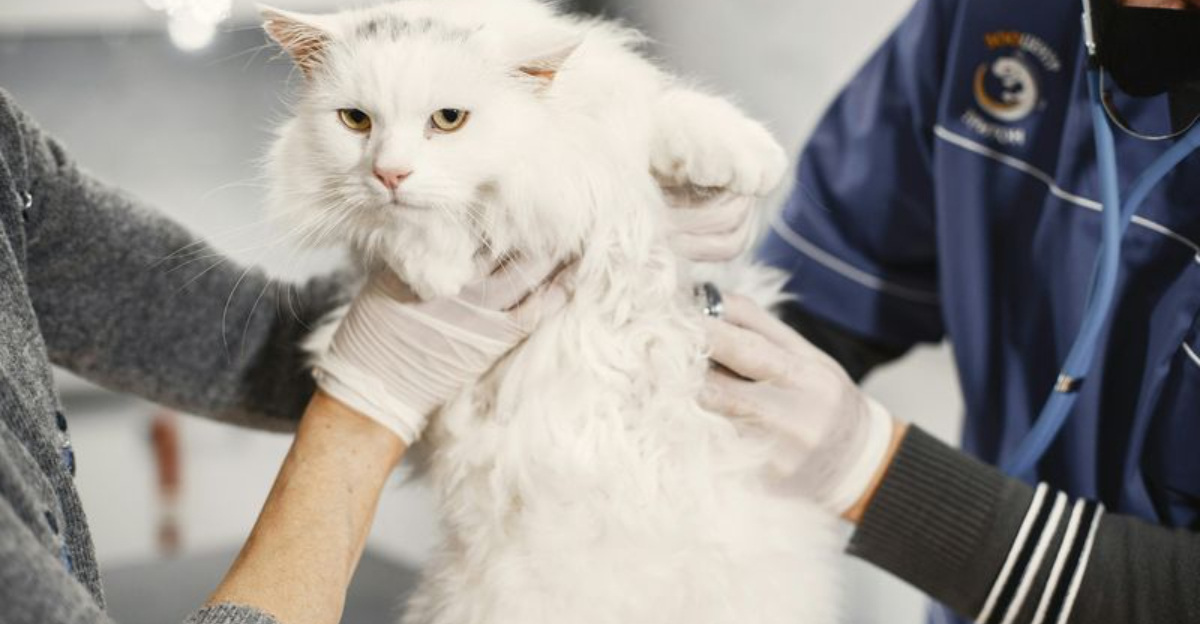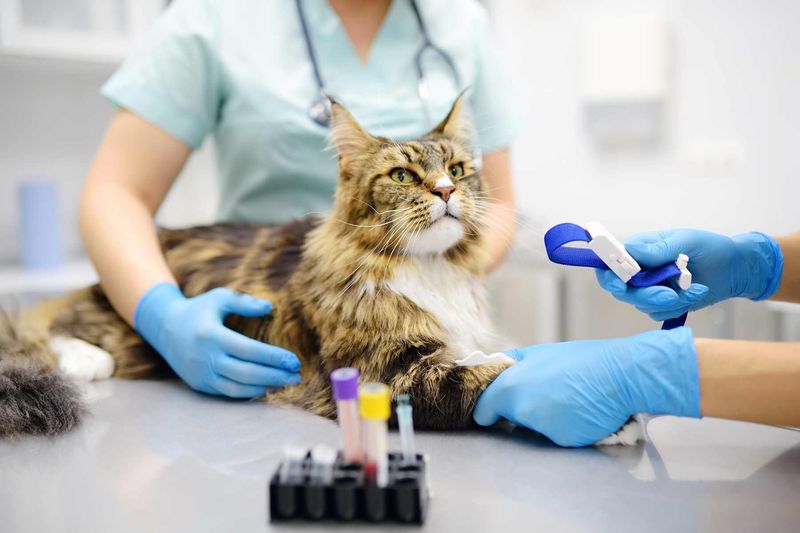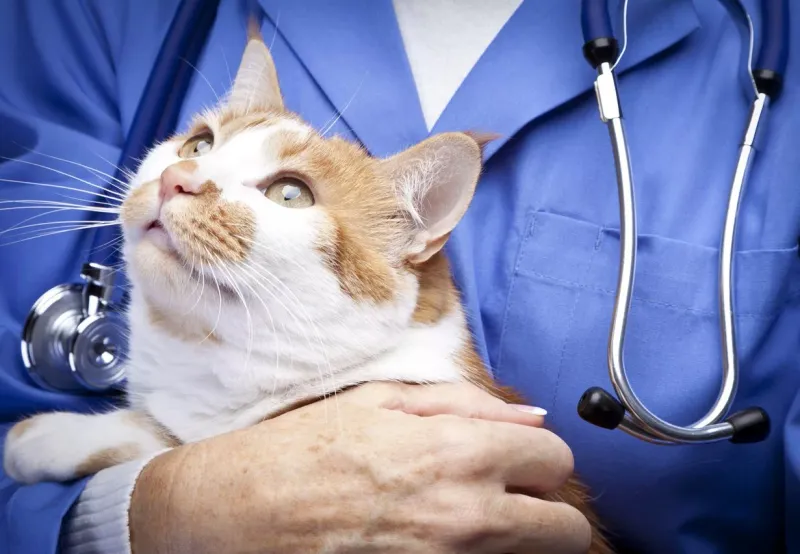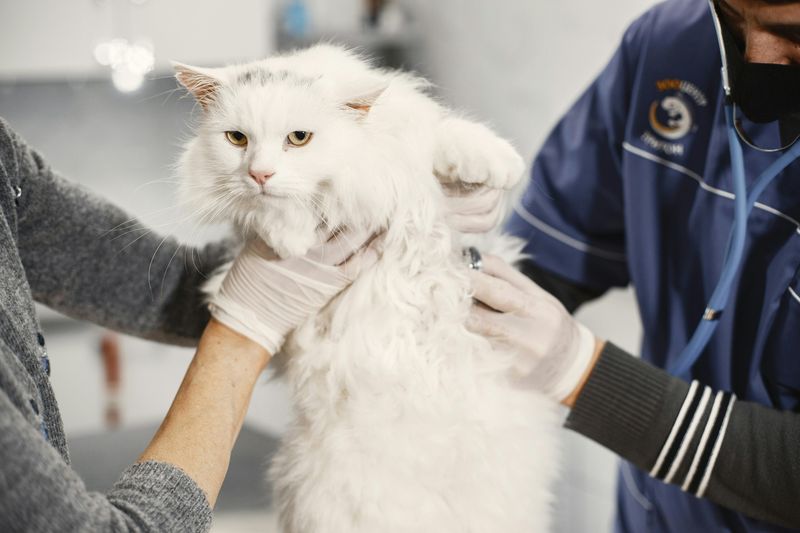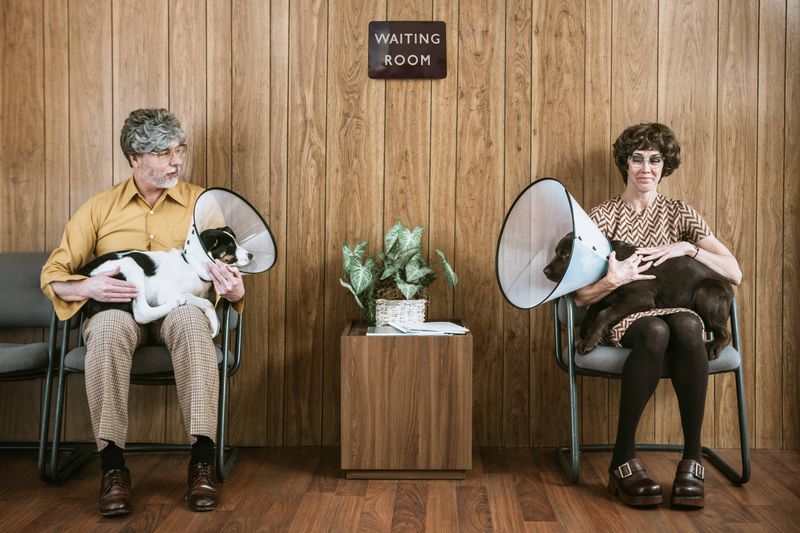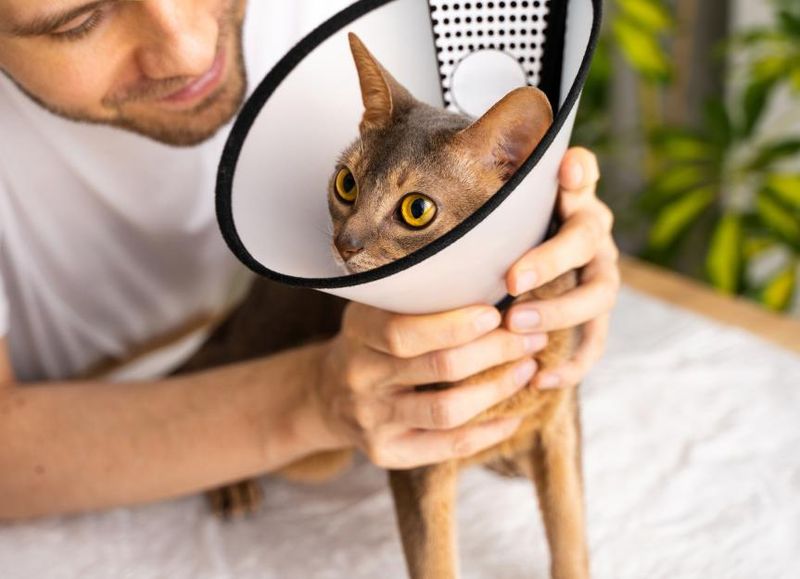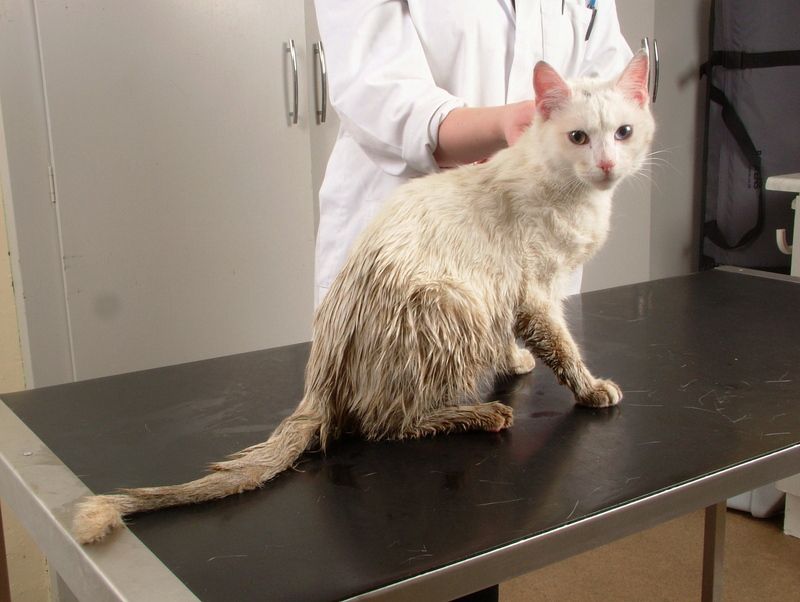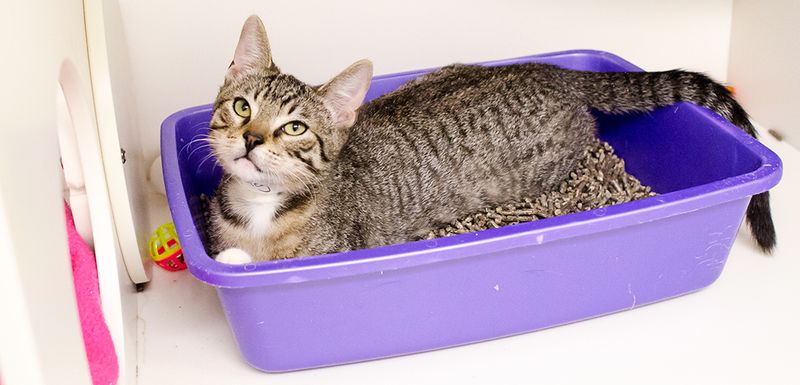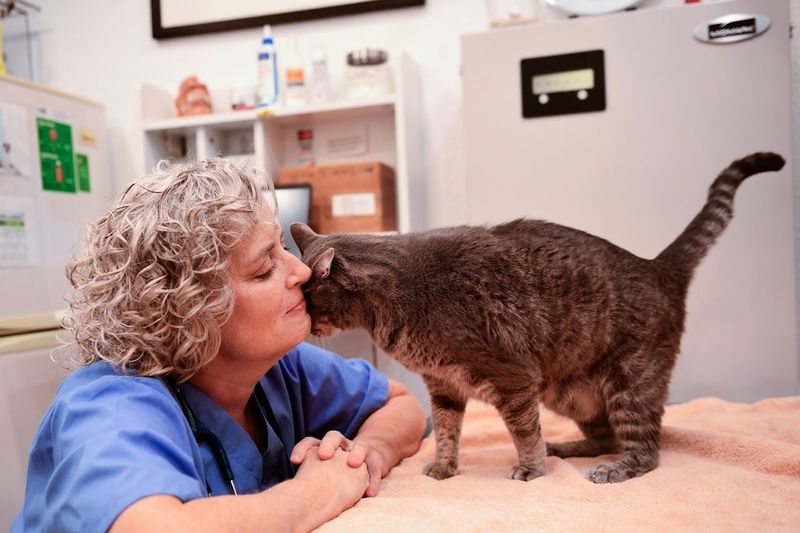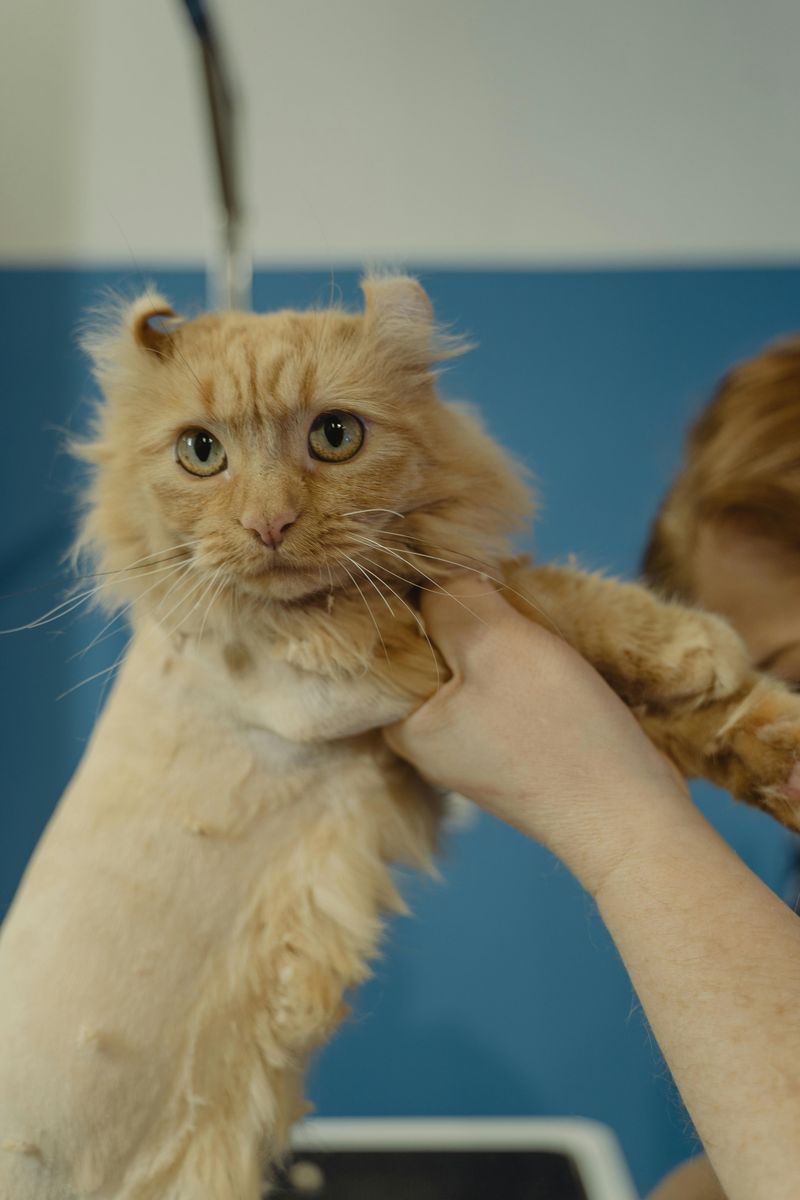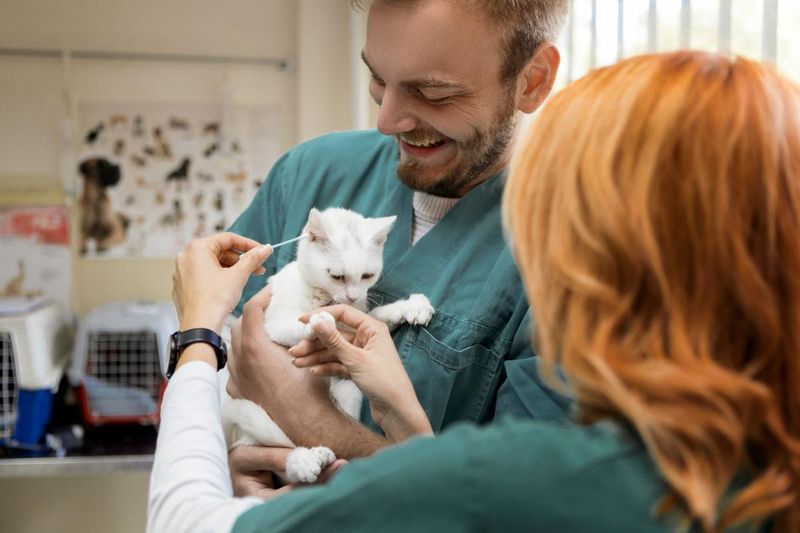📖 Table of Content:
- 1. Withholding Important Information
- 2. Googling Before Coming In (and Arguing About It)
- 3. Skipping Preventive Care
- 4. Being Late or Missing Appointments
- 5. Letting Your Pet Roam Freely in the Exam Room
- 6. Not Following Instructions
- 7. Bringing in a Dirty or Unkempt Pet
- 8. Using Social Media for Medical Advice
- 9. Being Distracted During the Appointment
- 10. Expecting Immediate Diagnoses Without Testing
- 11. Getting Defensive About Costs
Veterinarians choose their profession because they love animals—cats included. But as much as they enjoy helping your feline companion live a long and healthy life, there are certain habits that can quietly turn a regular vet visit into a frustrating experience. These aren’t outrageous offenses; in fact, most cat owners aren’t even aware they’re doing anything wrong.
Cats are mysterious, sensitive creatures, and that makes veterinary care both rewarding and uniquely challenging. What may seem like a harmless oversight or a quirk of cat parenting might actually add layers of complexity to diagnosis, treatment, and overall care. Vets are trained to handle a wide variety of cases, but some common behaviors from owners can slow down that process or even put cats at risk.
This isn’t about shaming—it’s about helping. When you understand what makes your vet’s job harder, you can avoid those missteps and become an even better advocate for your cat’s health. Think of this list as a behind-the-scenes look into the veterinary world, designed to keep your visits smooth, your kitty safer, and your vet a little more sane.
1. Withholding Important Information
Too often, owners fail to mention little things—like appetite changes or odd behavior—that could make a big difference in diagnosing a cat’s issue. A vet isn’t a mind-reader, and with cats being masters at hiding illness, even subtle changes matter. Forgetting to note that your cat has been vomiting for a week or used to be on a certain medication can lead to missed clues. Sometimes people hold back out of embarrassment or because they don’t think the detail is relevant. But everything from diet changes to recent stressors (like a move or new pet) can influence a cat’s health. Sharing full context doesn’t just help your vet—it could shorten your cat’s path to recovery. The more your vet knows, the better your cat’s care will be.
2. Googling Before Coming In (and Arguing About It)
Some owners walk into the clinic with firm beliefs shaped by search engines rather than experience. While researching cat health online isn’t wrong in itself, insisting your internet diagnosis is correct can get in the way of real help. Vets appreciate thoughtful questions but dread debates that start with “Well, I read on Reddit…” because they can derail appointments and waste precious time. The internet lacks nuance—something cats, with their quirky biology, demand. Online advice may skip over breed-specific factors, environmental influences, or symptoms that seem small but matter greatly. Trust that your vet isn’t dismissing you—they’re building their evaluation based on years of training and hands-on cases. Keeping an open mind is the best thing you can do for your cat.
3. Skipping Preventive Care
Prevention often gets overshadowed by crisis, especially with cats who hide pain so well. Many cat owners wait until something is clearly wrong before visiting the vet, which means conditions that could’ve been treated early become emergencies. Dental disease, kidney issues, and parasites can all creep in quietly and worsen without routine checks. Regular wellness visits and screenings help catch problems early, before they affect your cat’s quality of life—or your wallet. Think of these visits as oil changes, not tow-truck calls. Cats who get regular preventive care tend to live longer and healthier lives. Don’t wait for your cat to cry for help—they rarely do.
4. Being Late or Missing Appointments
Few things throw off a vet clinic’s rhythm more than no-shows and late arrivals. Cat appointments are carefully scheduled, often with extra buffer time because cats can be unpredictable or require gentler handling. When someone arrives 15 minutes late or doesn’t show at all, that slot can’t always be refilled, and it sets everyone behind. Some clinics have waiting lists—your missed appointment could’ve gone to a sick cat in need. Emergencies do happen, of course, but consistent lateness signals a lack of respect for the clinic’s time and logistics. When you’re on time, your cat benefits from a calmer environment and a less rushed appointment. Promptness is a form of care too.
5. Letting Your Pet Roam Freely in the Exam Room
Once inside the exam room, some owners unclip the carrier and let their cat wander, assuming it’ll help them relax. But unfamiliar spaces, odd smells, and vet tools can trigger anxiety or even aggression in cats, turning a routine exam into a stressful ordeal. Not only can a startled cat bolt or hide in a hard-to-reach spot, but handling them afterward becomes more difficult. Vets and techs prepare rooms for safety and containment—free-roaming disrupts that balance. Instead, wait for the vet to direct when and how to let your cat out. Controlled introductions lead to safer exams and happier cats. Boundaries in the exam room aren’t just about order; they’re about your cat’s security.
6. Not Following Instructions
Post-visit instructions are often clear but frequently ignored or only partially followed. Giving medications to cats can be tricky, sure—but skipping doses, misreading quantities, or stopping early can sabotage treatment. Sometimes, owners forget to return for follow-ups or fail to update the vet on how their cat responded to a new diet or therapy. These gaps in care leave vets guessing and can prolong or worsen your cat’s condition. If something isn’t working, your vet wants to hear about it so they can adjust. Communication doesn’t stop when you walk out the door. Consistency is what makes treatment plans succeed.
7. Bringing in a Dirty or Unkempt Pet
It might not seem like a big deal, but bringing in a filthy, matted, or heavily shedding cat complicates exams. Dirt and tangles can hide wounds, skin issues, or parasites, and excessive fur can clog diagnostic tools. A clean coat also signals overall wellness—neglect can suggest bigger issues. Grooming isn’t just about vanity; it helps your vet get a clearer picture of your cat’s health. Taking time to brush, wipe down, or even give a quick dry shampoo before the visit shows consideration. Plus, the exam goes faster and smoother when your vet isn’t trying to comb through chaos. Think of it as putting your best paw forward.
8. Using Social Media for Medical Advice
Turning to social media for cat health advice is tempting, especially when you want quick answers or reassurance. But Facebook groups and forums are no substitute for a vet who knows your cat’s history. Unvetted advice—no matter how well-meaning—can lead you down the wrong path, delay real treatment, or cause harm. Every cat is different, and what worked for one may be dangerous for another. Your vet has the context, tools, and training to guide you properly. If something feels off with your cat, your first call should be the clinic, not the comment section. Real answers come from real professionals.
9. Being Distracted During the Appointment
Vet appointments require full attention, yet it’s common to see owners texting, taking calls, or wrangling kids while the vet is explaining something important. Cats deserve focused care, and distraction can mean missing key instructions or details about test results, medications, or next steps. Multitasking in that moment may seem harmless, but it often leads to misunderstandings or forgotten advice. Giving your full attention shows respect for the vet’s expertise—and your cat’s needs. Treat that 20-minute appointment like a meeting about your cat’s future. Your focus helps make every second count.
10. Expecting Immediate Diagnoses Without Testing
Frustration sometimes bubbles up when an answer isn’t immediate, but diagnosing cats takes more than a glance. Cats often present vague symptoms, and without bloodwork, X-rays, or urinalysis, your vet may only be guessing. Hoping for a miracle diagnosis without any testing ignores how complex feline health really is. Vets want answers as quickly as you do, but they need proper data to get there. Testing isn’t upselling—it’s clarity. Trust the process, even if it starts slow. The best care begins with complete information.
11. Getting Defensive About Costs
Veterinary care costs can be surprising, but reacting with hostility or suspicion doesn’t change the reality. Most vets aren’t in this field to get rich—they’re balancing tight overhead, staff pay, equipment, and emergency care. When owners accuse clinics of gouging or demand discounts, it places emotional strain on professionals who are already stretched thin. Transparency about pricing is part of ethical care, and many clinics offer payment options or alternatives. If something feels too expensive, talk it through calmly—vets want to help you find a workable plan. Respectful dialogue opens more doors than demands.
